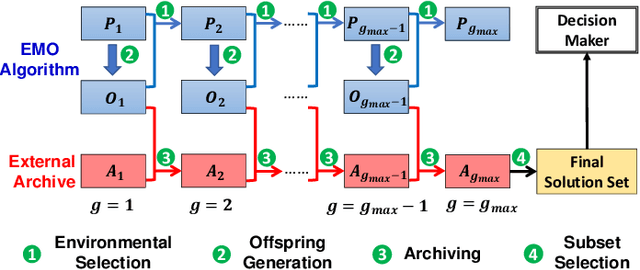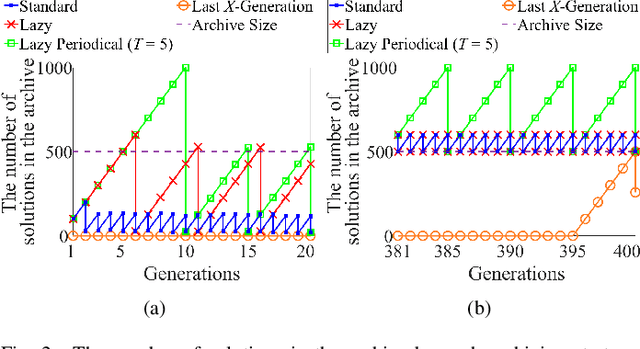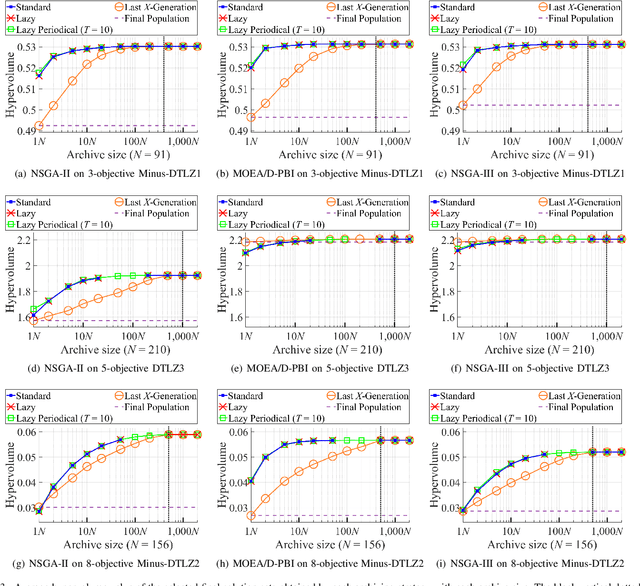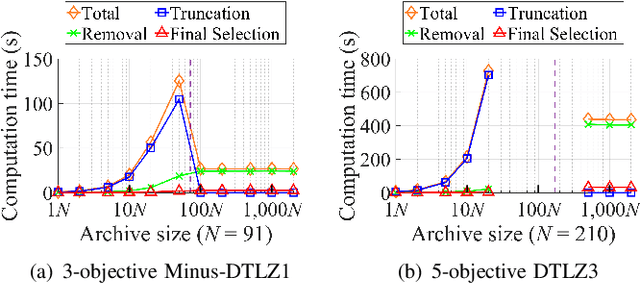Effects of Archive Size on Computation Time and Solution Quality for Multi-Objective Optimization
Paper and Code
Sep 07, 2022



An unbounded external archive has been used to store all nondominated solutions found by an evolutionary multi-objective optimization algorithm in some studies. It has been shown that a selected solution subset from the stored solutions is often better than the final population. However, the use of the unbounded archive is not always realistic. When the number of examined solutions is huge, we must pre-specify the archive size. In this study, we examine the effects of the archive size on three aspects: (i) the quality of the selected final solution set, (ii) the total computation time for the archive maintenance and the final solution set selection, and (iii) the required memory size. Unsurprisingly, the increase of the archive size improves the final solution set quality. Interestingly, the total computation time of a medium-size archive is much larger than that of a small-size archive and a huge-size archive (e.g., an unbounded archive). To decrease the computation time, we examine two ideas: periodical archive update and archiving only in later generations. Compared with updating the archive at every generation, the first idea can obtain almost the same final solution set quality using a much shorter computation time at the cost of a slight increase of the memory size. The second idea drastically decreases the computation time at the cost of a slight deterioration of the final solution set quality. Based on our experimental results, some suggestions are given about how to appropriately choose an archiving strategy and an archive size.
 Add to Chrome
Add to Chrome Add to Firefox
Add to Firefox Add to Edge
Add to Edge